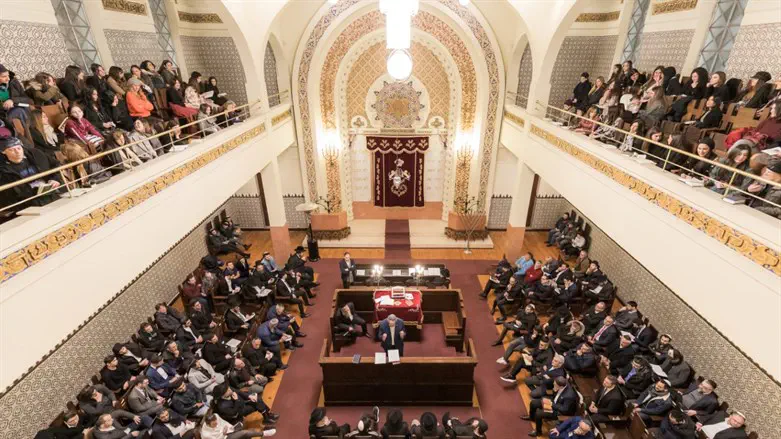
One of two groups charged with certifying citizenship applications from Sephardic Jews around the world said it would no longer do so following the arrest of its rabbi on suspicion of fraud.
The Jewish Community of Porto, which represents Jews in Portugal’s second-largest city, announced Sunday that it is “no longer interested in cooperating with the state in the certification of Sephardic Jews,” according to a statement reported by the Lusa news agency.
The statement followed the arrest Thursday of Rabbi Daniel Litvak in connection with an investigation into alleged fraud in the community’s processing of citizenship applications. The investigation was fueled in part by the organization’s awarding of citizenship last year to Roman Abramovich, a Russian Jewish oligarch targeted for sanctions because of his ties to the government of Russian President Vladimir Putin.
Portugal and Spain passed laws guaranteeing citizenship to such applicants in 2013. The governments of both countries said the laws were meant to atone for the Inquisition, a campaign of persecution against Jews that drove tens of thousands to flee those countries, primarily in the 16th century.
Abramovich’s citizenship — which gave him a European Union passport for the first time — raised eyebrows because few Russian Jews have Sephardic ancestry, although some Sephardic Jews who left Spain and Portugal because of the Inquisition did make their way to Eastern Europe.
The Jewish Community of Porto has denied any wrongdoing and said it processed Abramovich’s application as it would anyone else’s.
The group’s decision not to process any more citizenship applications leaves only the Jewish Community of Lisbon with the right to naturalize the descendants of Sephardic Jews. It is unclear how many applications are currently pending with the Jewish Community of Porto, which has handled thousands of such applications since the citizenship law went into effect in 2015.
The law has been a boon for the community of roughly 700 Jews. Applicants have paid at least 250 euros each, a fee that has turned around the community’s severe cash flow problem. In recent years, it has produced a film about Porto’s Jewish history and has opened a Holocaust museum and other amenities.